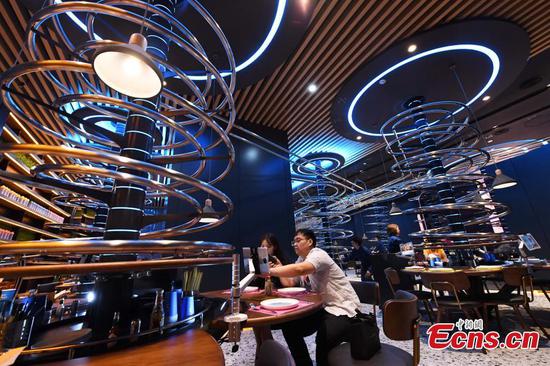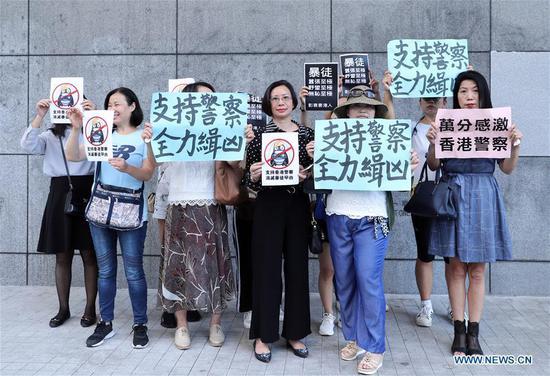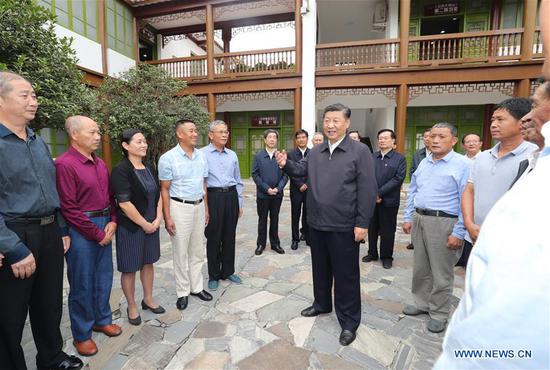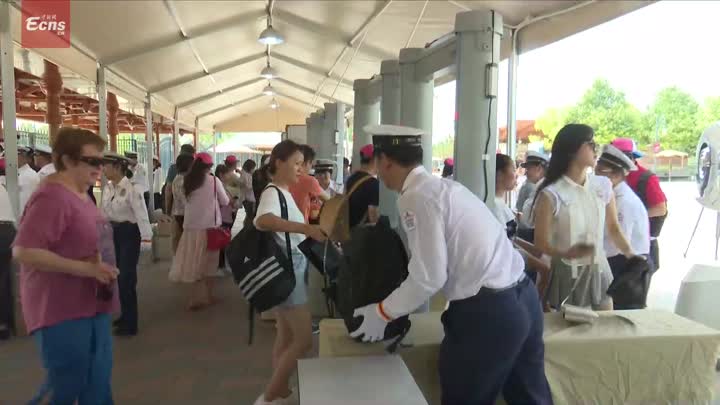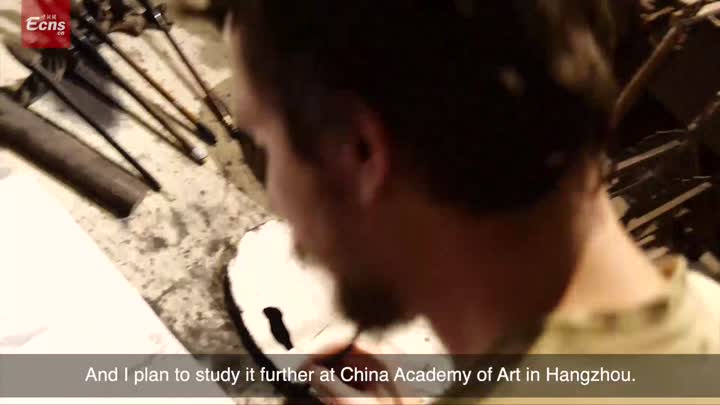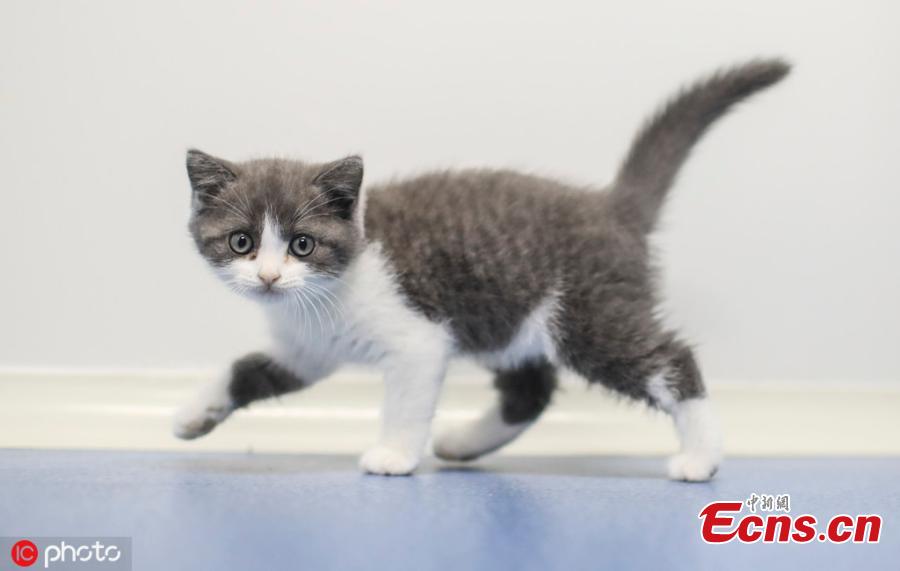
"Garlic", the first kitten cloned by Beijing-based biotechnology company Sinogene. The company, established in 2012 in Beijing’s Changping District, cloned its first dog — Longlong, or Dragon — for medical research in 2017 before offering the service commercially the following year. The company is also in the process of cloning police dogs, dogs for medical research, and horses. (Photo/ICphoto)
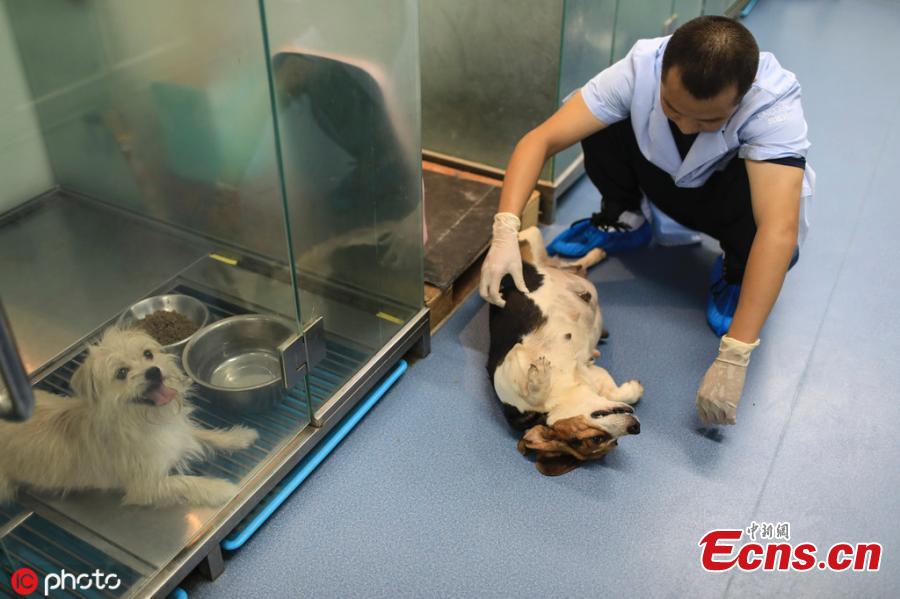
A staff member plays with a surrogate mother dog at Beijing-based biotechnology company Sinogene. The company, established in 2012 in Beijing’s Changping District, cloned its first dog — Longlong, or Dragon — for medical research in 2017 before offering the service commercially the following year. The company is also in the process of cloning police dogs, dogs for medical research, and horses. (Photo/ICphoto)
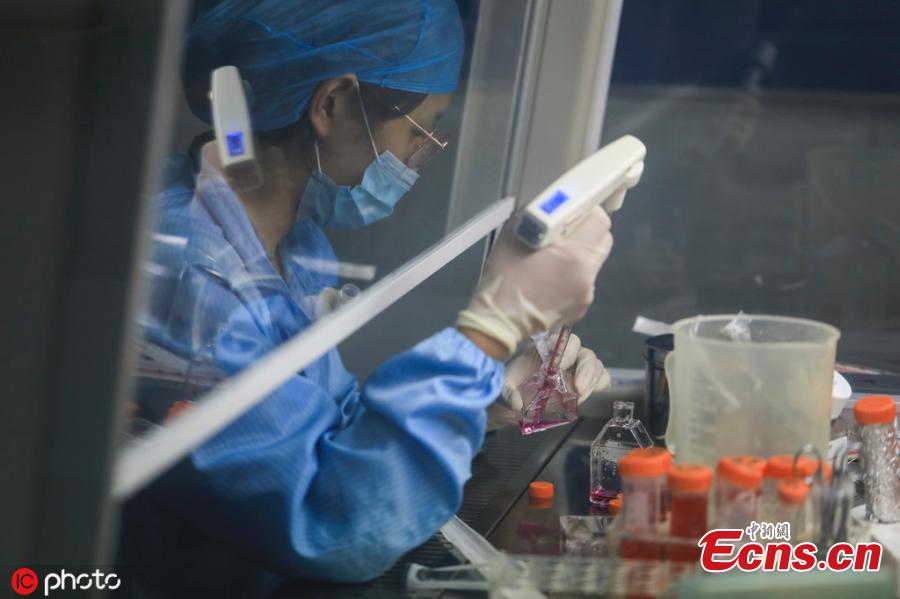
A staff member works in a lab of Beijing-based biotechnology company Sinogene. The company, established in 2012 in Beijing’s Changping District, cloned its first dog — Longlong, or Dragon — for medical research in 2017 before offering the service commercially the following year. The company is also in the process of cloning police dogs, dogs for medical research, and horses. (Photo/ICphoto)
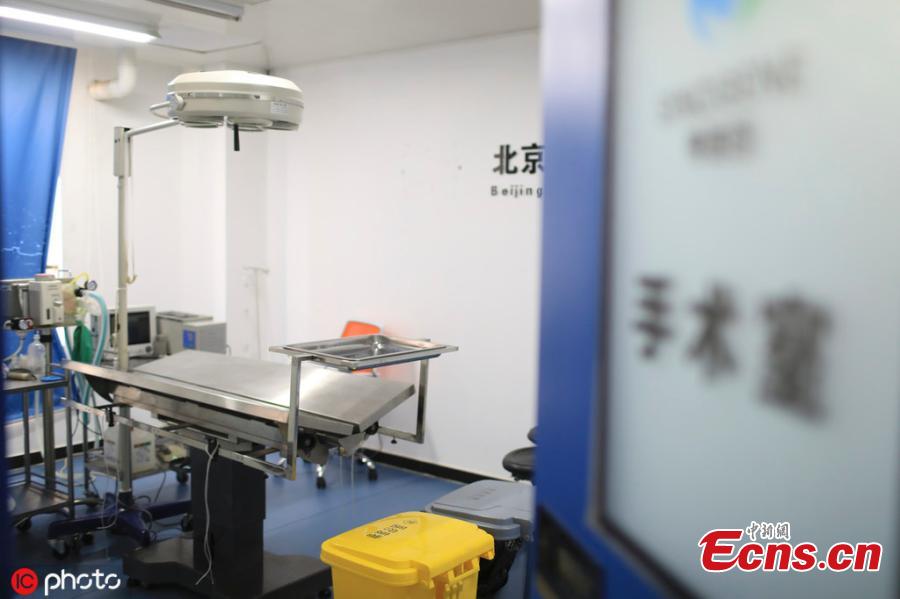
A staff member works in a lab of Beijing-based biotechnology company Sinogene. The company, established in 2012 in Beijing’s Changping District, cloned its first dog — Longlong, or Dragon — for medical research in 2017 before offering the service commercially the following year. The company is also in the process of cloning police dogs, dogs for medical research, and horses. (Photo/ICphoto)
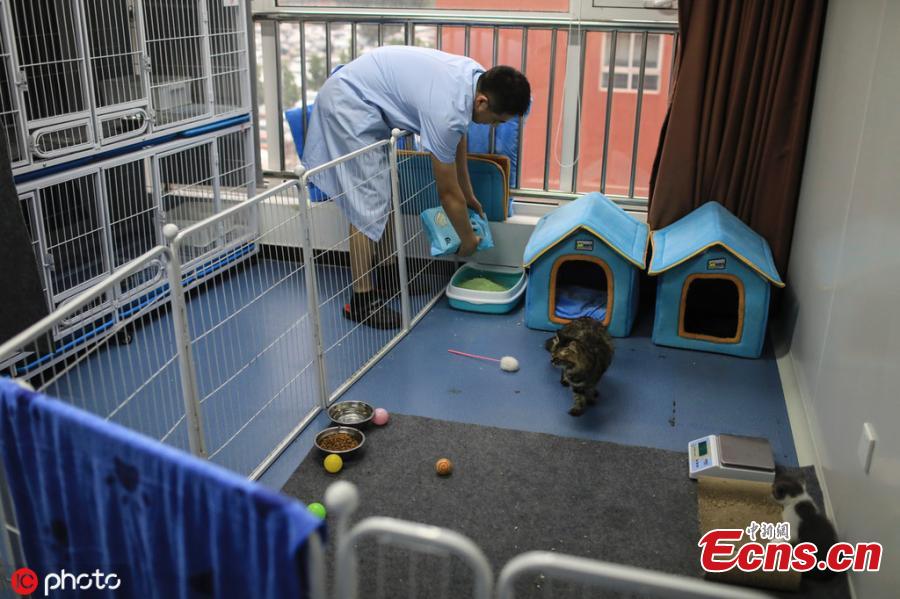
A staff member looks after cloned kitten ‘Garlic’ and its mother at Beijing-based biotechnology company Sinogene. The company, established in 2012 in Beijing’s Changping District, cloned its first dog — Longlong, or Dragon — for medical research in 2017 before offering the service commercially the following year. The company is also in the process of cloning police dogs, dogs for medical research, and horses. (Photo/ICphoto)











